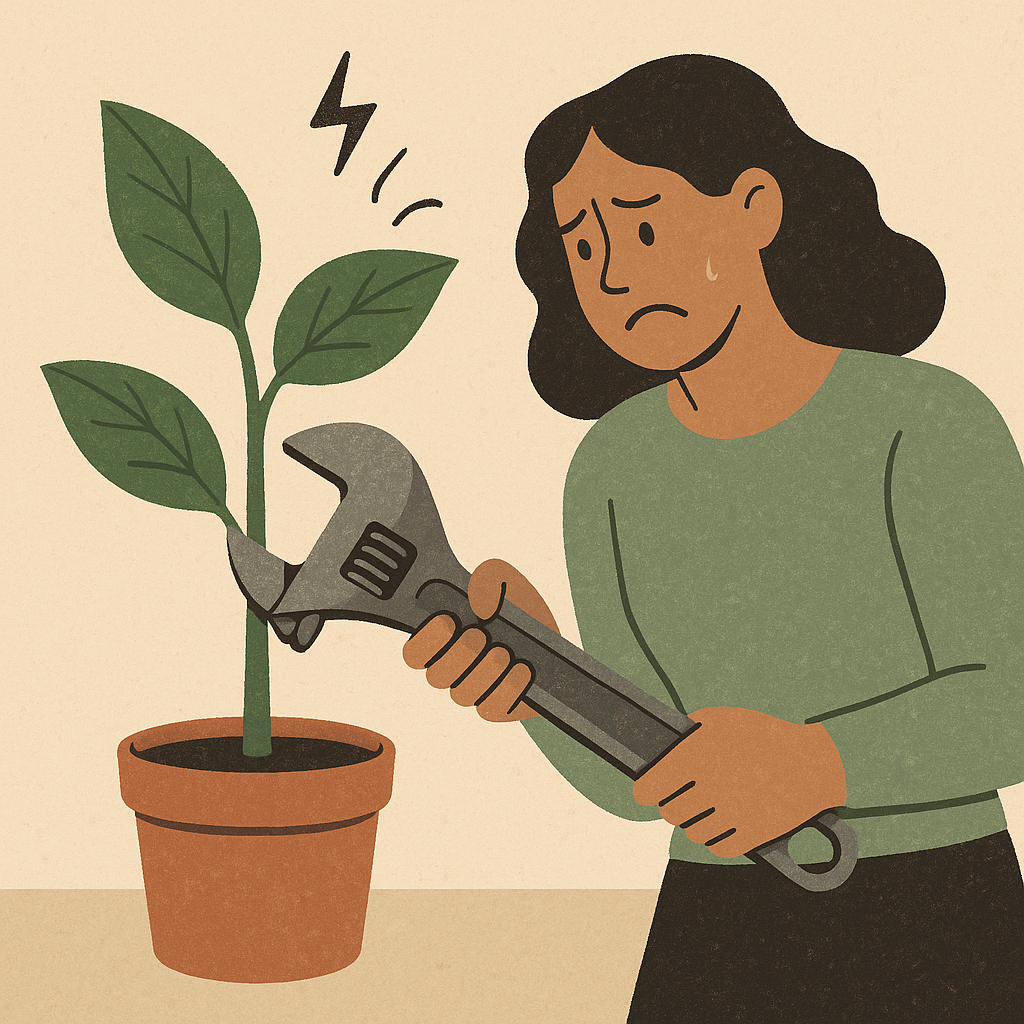In this edition of the Sustainability Book Club series, we are reading Doughnut Economics by Kate Raworth, Chapter 4: Get Savvy with Systems
Imagine trying to fix a garden with a wrench.
That’s what it’s like applying old-school economic models to a world in flux.
For too long, we’ve treated the economy as a machine — predictable, mechanical, and just a few tweaks away from perfection.
But machines don’t grow. They don’t adapt. They don’t surprise you.
Gardens do.
This metaphor — economy as garden — stopped me in my tracks. It reframes everything. It suggests we need to tend, not control. Observe, not override. Cultivate the conditions, not command the outcomes.
Traditional economics still clings to an outdated fantasy: that the market is governed solely by elegant supply and demand curves. But let’s be real — that’s not how people or systems work.
Real economies are messy. Emotional. Full of feedback loops, delays, irrationality, and emergence.
They behave more like living organisms than clockwork machines.
It’s not surprising we ended up here. The discipline of economics borrowed its approach from physics — all in an attempt to be seen as an “exact” and respectable science. But what if we had borrowed from ecology instead?
We might’ve ended up with a model that embraces complexity instead of simplifying it.
Systems thinking offers a way forward. It is a mindset shift that trains us to see patterns over parts; loops instead of lines; influence instead of control.
That means letting go of trying to master the economy. Instead of attempting top-down control, we can work from the bottom up. We can influence smaller pieces that contribute to the larger economic ecosystem.
It’s not easy to embrace this type of thinking. Our brains didn’t evolve for this. We’re wired to focus on short-term, local concerns. Not long-term, systemic ones.
But society’s biggest challenges are now global and complex. Climate change. Inequality. Financial instability. These aren’t random crises — they’re symptoms of deeper system patterns.
They’re what scientists call “organized complexity.” Not total chaos. Just deeply interwoven parts producing effects we can’t isolate or predict.
That’s why I’m drawn to the idea of our economy as a garden.
We should not try to be the engineer pulling levers. Or the economist with the perfect model. But the steward. The one paying attention. Working with the system, not against it.
It makes me wonder: Who gets to be the gardener? Is it governments? Citizens? AI?
And how do we train ourselves to notice the root structures, not just the surface symptoms?
Systems thinking is a practice. Not just a lens, but a muscle.
And like any practice, it requires repetition, reflection, and the humility to learn.
Are we — as individuals, institutions, and a society — ready to accept that we can only influence, not control, the economy? Or are we still too attached to the illusion of mastery?
Thanks for reading with me! I would love to hear from you if this sparked your interest. Just reply to this email.
Stay curious,
Louis





